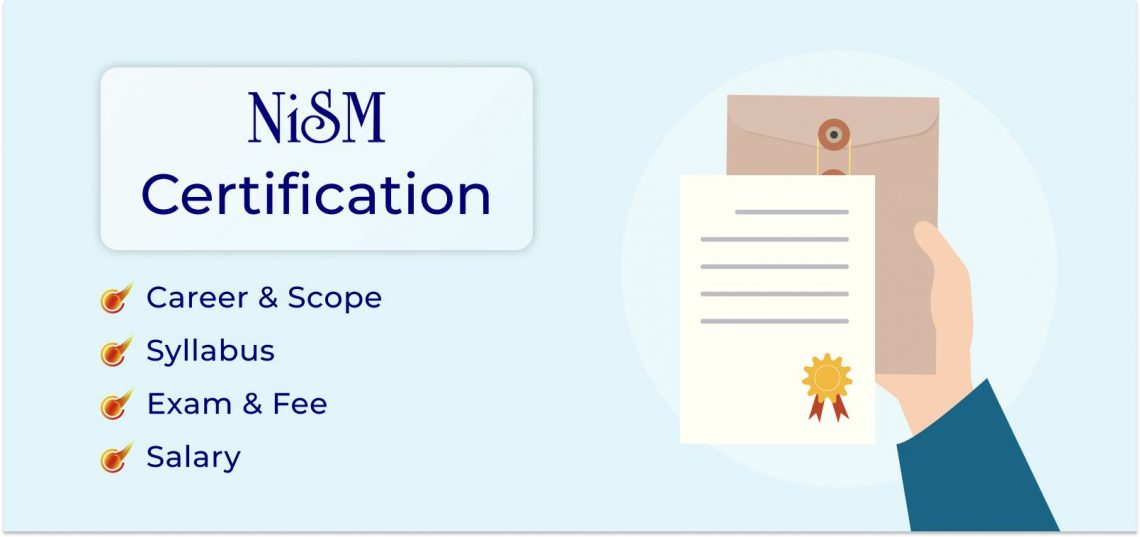Preparing for the NISM Mutual Fund Exam is a critical step towards achieving certification and advancing your career in the financial sector. However, candidates often make mistakes during their preparation that can hinder their success. In this blog, we’ll explore some of the most common mistakes that candidates make while preparing for the NISM Mutual Fund Exam and provide tips on how to avoid them.
Mistake 1: Neglecting the Official NISM Study Material One of the most common mistakes candidates make is neglecting the official NISM study material. This material is specifically designed to cover the entire syllabus of the exam and is the most reliable source of information.
- Why It’s a Mistake: The official NISM study material is tailored to the exam’s syllabus, and neglecting it means you may miss out on essential topics that will be tested in the exam.
- How to Avoid It: Make the official NISM 5a mock test material the foundation of your preparation. Study it thoroughly and ensure you understand all the concepts covered.
Mistake 2: Over-Reliance on Mock Tests While mock tests are an essential part of exam preparation, over-relying on them at the expense of studying the actual content can be detrimental.
- Why It’s a Mistake: Mock tests are designed to simulate the exam environment, but they are not a substitute for understanding the material. Relying too heavily on them without proper study can lead to gaps in knowledge.
- How to Avoid It: Use mock tests as a tool to assess your readiness, not as your primary study method. Balance your preparation with a thorough review of the study material.
Mistake 3: Inadequate Time Management Poor time management is a common mistake that can lead to rushed or incomplete preparation.
- Why It’s a Mistake: Inadequate time management can result in insufficient coverage of the syllabus, leaving you underprepared for the exam.
- How to Avoid It: Create a study schedule that allocates sufficient time for each topic, including revision and mock tests. Stick to your schedule and adjust it as needed based on your progress.
Mistake 4: Skipping Difficult Topics Many candidates tend to skip difficult topics or those they find challenging, hoping that they won’t be heavily tested in the exam.
- Why It’s a Mistake: Skipping difficult topics can leave you vulnerable on exam day if those topics are covered extensively. It also limits your overall understanding of the subject matter.
- How to Avoid It: Tackle difficult topics head-on. Break them down into smaller, manageable sections and seek help if needed. Practice questions related to these topics to build confidence.
Mistake 5: Lack of Consistent Revision Some candidates make the mistake of not revising regularly, leading to a loss of retention over time.
- Why It’s a Mistake: Without consistent revision, the information you’ve studied can fade from memory, leaving you unprepared for the exam.
- How to Avoid It: Incorporate regular revision into your study schedule. Use revision notes, flashcards, and summary sheets to reinforce key concepts.
Mistake 6: Ignoring Exam Instructions Ignoring or not fully understanding the exam instructions can lead to avoidable mistakes during the exam.
- Why It’s a Mistake: Not following the exam instructions can result in errors, such as misinterpreting questions or missing important details, which can negatively impact your score.
- How to Avoid It: Familiarize yourself with the exam format and instructions before the exam day. Read the instructions carefully during the exam and ensure you understand what is being asked.
Mistake 7: Overloading Yourself with Too Many Resources While it’s important to use a variety of study resources, overloading yourself with too many can be counterproductive.
- Why It’s a Mistake: Using too many resources can lead to confusion and information overload, making it difficult to focus on what’s important.
- How to Avoid It: Choose a few high-quality resources and stick to them. The official NISM study material should be your primary resource, supplemented by a few reliable reference books and mock tests.
Mistake 8: Procrastination Procrastination is a common issue that can lead to last-minute cramming and inadequate preparation.
- Why It’s a Mistake: Procrastination can cause unnecessary stress and anxiety, and cramming at the last minute is rarely effective for long-term retention.
- How to Avoid It: Start your preparation early and break it down into manageable steps. Set specific goals and deadlines to keep yourself on track.
Mistake 9: Not Seeking Help When Needed Some candidates hesitate to seek help when they encounter difficulties, which can slow down their progress.
- Why It’s a Mistake: Not seeking help when needed can lead to misunderstandings and gaps in knowledge, which can impact your exam performance.
- How to Avoid It: Don’t hesitate to reach out to instructors, peers, or online forums if you need help. Collaborating with others can provide new insights and clarify difficult concepts.
Mistake 10: Underestimating the Exam Finally, underestimating the difficulty of the NISM mutual fund distributor exam mock test Exam is a mistake that can lead to complacency and poor performance.
- Why It’s a Mistake: Underestimating the exam can result in inadequate preparation, leading to a lower score than you anticipated.
- How to Avoid It: Treat the exam with the seriousness it deserves. Prepare thoroughly, practice regularly, and approach the exam with confidence and focus.
Avoiding common mistakes during your NISM Mutual Fund Exam preparation can significantly enhance your chances of success. By staying focused, managing your time effectively, and using the right resources, you can ensure that you’re well-prepared for the exam. Remember, the key to success is a balanced approach that combines thorough study, regular practice, and a positive mindset. With dedication and careful planning, you’ll be on your way to achieving your certification and advancing your career in the mutual fund industry.






